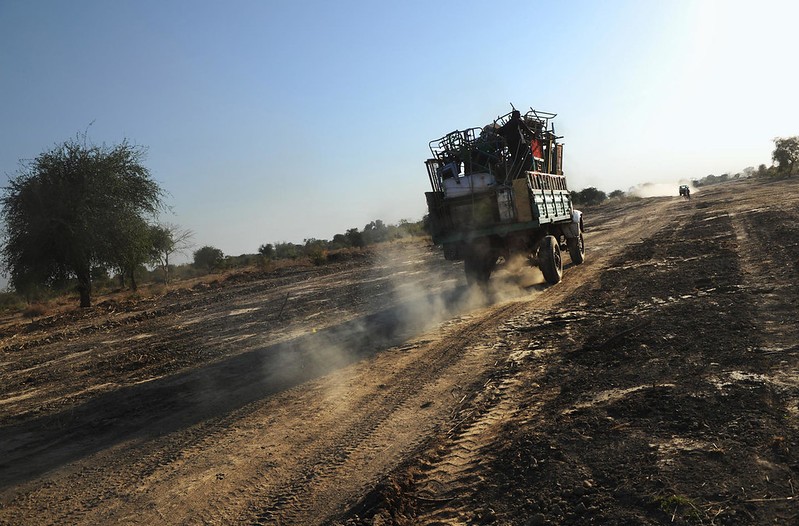Many countries have faced democratic backsliding or autocratization, especially in the past 30 years. With a staggering 72 percent of the world population living in autocracies (according to the V-Dem 2023 report), we need more evidence to better understand what works to support democracy and freedom in backsliding contexts to reverse this trend. To support this effort towards evidence-informed decision-making in democracy programming, 3ie has gathered existing findings in an evidence gap map and rapid evidence assessment (REA), with support from the UK government's Foreign, Commonwealth and Development Office (FCDO). Here we summarise some of the key findings of this work.
The evidence base needs to expand and diversify. Our mapping of evidence across the sectors of rule of law, human rights, civil society, governance, political competition, and independent media identifies over 1,800 quantitative impact evaluations, qualitative evaluations and systematic reviews. We find that:
- Less than 12% of this body of evidence focuses on democratic backsliding contexts
- Half of the 75 to 88 countries that have experienced backsliding in the past 30 years (according to Vdem and IDEA data) are not covered
- The focus is mostly on South Asia and Sub-Saharan Africa – both representing over 70% of the evidence base
- This evidence is not evenly distributed between interventions and outcomes: while we observe clusters on topics such as accountable governance or civic space, inclusive politics or media have less evidence available. This fragmentation of evidence limits what we can learn from it.
If we want to understand how we can address democratic backsliding, we need more evidence on the effects of interventions working across contexts.
Effects of interventions largely positive, but usually negligible
Findings from our REA of 64 evaluations between 2007 and 2023 across all relevant intervention and outcome types show predominantly small effects of democracy and freedom interventions in backsliding contexts.
We do observe some promising features such as the positive, yet small, effects of Capacity strengthening of public, judicial and security sector interventions on Attitudes and beliefs about freedom and democracy outcomes or Voter information, voter education, and get-out-the-vote interventions on Public engagement in democracy and governance and Public trust in government outcomes. However, evidence shows that democracy and freedom interventions most often do not radically reverse the key drivers of backsliding.
This small and statistically not very significant effect of the interventions might be the consequence of a lack of consideration for the full spectrum of root causes and characteristics of the backsliding contexts in the design of the intervention. The design and measurement of intervention impacts often only acknowledge context: 14% of the included studies explicitly report on the intervention objective of addressing a democratic backsliding challenge, and 18% provide an analysis of the backsliding challenges experienced in their intervention setting.
Need to understand drivers of backsliding and tailor responses
To better address democratic backsliding, we should understand that the contexts are heterogeneous. While a decrease in democratic standards is common across these contexts, the causes and consequences of this phenomenon might be different. As a result, where evidence is available, we observe that analogous interventions do not necessarily bear the same effects even in comparable contexts.
Similarly, challenges to democratic processes identified at the local scale might differ from the challenges to democratic processes at the national scale. However, only a minority of studies focus on nationwide interventions.
Understanding the specificities of each context will allow implementers to design tailored interventions. This will be facilitated by a detailed problem analysis that not only considers the high-level challenges to democracy but also the specific features of each scale of the backsliding context they seek to reverse.
Partnering with local democracy facilitators
Implementers working on reversing backsliding trends may face barriers to implementation that limit the impact of the interventions. Findings highlight that partnering with local powerholders, building incentives for political actors and adapting approaches and strategies to target enablers of change can catalyze the democratization process.
For example, Hearn and colleagues (2016) assessed the impact of strengthening the involvement of civil society organizations in the reform process of Indonesia's justice sector. Through their case studies, they identified three key factors associated with the organizations’ ability to drive justice sector reform: adopting evidence-informed and collaborative approaches in their engagement, possessing a good reputation and adequate resources, and demonstrating the capacity to establish and maintain relationships with government institutions.
Research will be a key driver of success in addressing democratic backsliding
To know what works to address democratic backsliding, evidence will need to incorporate new elements to better inform intervention designs. Firstly, evidence needs to consider the additional challenges raised by backsliding contexts: for example, access to data in contexts where transparency is challenged is not an easy task and getting buy-ins from local stakeholders may require time and diplomacy. Secondly, research should prioritize filling gaps such as in the domain of inclusive politics, media and corruption and economic democracy. This analysis of impact should not limit itself to a subset of democracy outcomes but seek to analyze the full spectrum of outcome domains at the local and national scales and for both short and long-term effects. Finally, research should aim at addressing the gap of qualitative evidence through theory-based and mixed-method approaches providing evidence on how and why things work in these contexts.
To know more, view our mapping and REA protocol, summary report and policy brief.
Comments
Hi Lydia ! Thank you for your comment. We have recently published an EGM focusing on Rule of Law, you might find relevant resources there : https://developmentevidence.3ieimpact.org/egm/rule-of-law-evidence-gap-…










This is much needed research. I am currently trying to find evidence on rule of law interventions and find there is no available comprehensive data, just a few random evaluations. Please let me know if you have other reports on this.